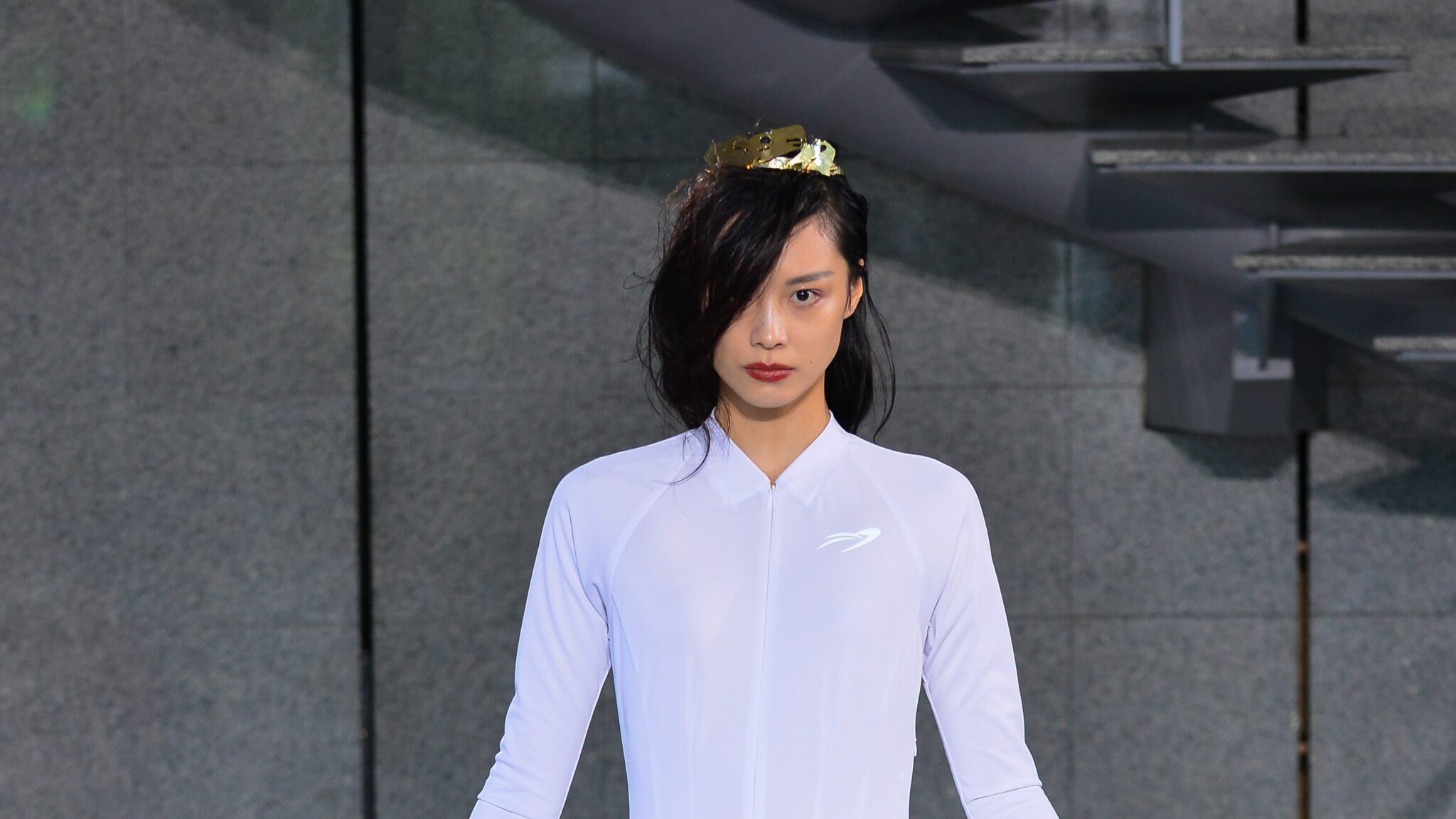A lonely boy from a small town, who escapes an unhappy family life to try and make it in the big city – a familiar story to many and one that Yohei Ohno certainly recognizes. For spring, the 36-year-old designer threw himself into his own version of this age-old story, with a bittersweet collection that drew on a troubled childhood. He called it New City, New Car.
Earlier this year, Ohno returned to his hometown in Aichi Prefecture (a place he left more than 15 years ago) to research athletic fabrics, but was blindsided by a family photo album of him smiling as a child. From then on, his ideas for the season began to unfold. “I have never made a personal collection before and my family is my weak point. I thought if I dived in too deep my heart would be ripped out,” he said candidly after the show.
The introspective approach is new to Ohno, who has focused on external artistic influences in the past. He’s especially a fan of architects, geometric artists, and technology, all of whom give his women’s clothing a robotic, vintage sci-fi feel with a touch of JG Ballard-esque perversion. Darkness has been bubbling somewhere under the surface of his work so far, but this season he went head-on. “In previous collections I was inspired by new things from the outside, but this time I felt I had to face the pain of my own traumatic experiences to create a more personal collection,” he said.
The soul-searching gave Ohno’s work a new level of depth – and a sense of humour, too. A white lace dress was decorated with what appeared to be delicate blue feathers, but turned out to be plastic price tags up close. Elsewhere, rainbow-polka-dot pants were made of fabric inspired by LeSportsac bags—known as a stereotypically old-fashioned (yet practical) accessory popular among country bumpkins in Japan—while sports jerseys were artfully twisted to show skin, or pinned and draped in seedy silhouettes.
The details were deliberately unfashionable, reminiscent of the low-glamor of provincial life, while taking an ironic look at the contemporary trend of sportswear as a fashion statement. “I don’t play sports, so I deliberately tried to express this unstylish image I have of sportswear,” he said. The curves and bright colors of schoolyard rugby balls inspired the exaggerated first looks, and the hazy memories of his father’s car paired with a Tesla cyber truck inspired the latter, a literal expression of the tension between memories of the past and dreams for the future.
The final two looks consisted of veils printed with vignettes of his family photos, while memories floated on the fabric. Ohno’s parents and older sister attended the show and tears flowed. Sometimes home is the hardest place to go.





